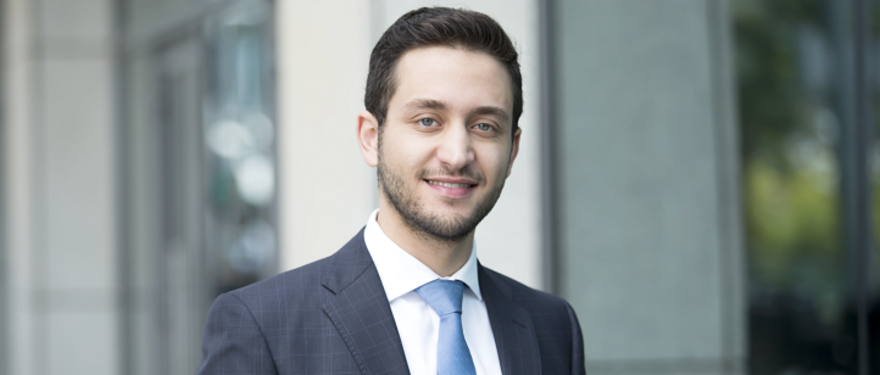My name is Ali. I’m an EC in the MBA program, and I’m from Syria. I was born in Los Angeles, where my parents were living at the time, but spent my formative years in Damascus. I attended Boston University where I got my BS and MEng in Mechanical and Manufacturing Engineering, respectively.
Upon graduating, I worked briefly for a Cambridge-based education startup named NuVu, before switching into management consulting and joining McKinsey. I spent time at McKinsey’s Dubai and New York offices, where I worked in a variety of industries and functions, including telecom, banking, healthcare, education, and economic development.
There are a few common reasons why most of my classmates wanted to come to HBS. I chose HBS for two reasons. First, it provided me with an opportunity to reflect on my life and career thus far, and where I would like to go in the future. HBS attracts students from all walks of life. As an example, my section’s classroom last year had 38 flags hanging on the wall, celebrating the countries we all come from. There is so much to learn by engaging with classmates in a deep and meaningful way, both inside and outside the classroom.
Second, HBS is an exceptional platform to explore future career options. The summer after RC year is an (almost) risk-free opportunity to experiment with career options that one is interested in, but is unsure about. I chose to work for a startup in San Francisco, named Rinse. Also, recruiting season during both RC and EC years provides unparalleled exposure to some of the best companies in the world. It is a tremendous opportunity to network with potential employers, from any industry or geography of interest.
Applying to top MBA programs can feel intimidating at first. Every year, thousands of competing applicants have great GPAs, high GMAT scores, experience at top-notch organizations, and gushing recommendations. I wanted my application to accurately tell the story of who I am, what makes me different, and therefore, what I could bring to an HBS classroom, and the HBS community more broadly.
When it came to recommendations, I was seeking two types of people. First, I wanted someone who had worked very closely with me, and had a micro-level view of my skillset in day-to-day work. That person would be able to provide great insight, and back it up by pointing to specific experiences they’d had with me. I ended up asking a McKinsey Partner whom I’d closely worked with on a real estate project in Saudi Arabia.
Second, I wanted someone who had a macro-level view of my work performance over time, with different teams, and across various work settings. If the first recommender provided depth, this one provided breadth. I asked my McKinsey ‘advisor,’ who was responsible for my professional development and bi-annual evaluations. He was able to give a more comprehensive, long-term view of consistent patterns of strengths and weaknesses that I had as I worked with different teams, on different projects, and in different industries.
With that said, there’s no one right way to select your recommenders – it really is different for everyone. I chose to take this approach, but I know many of my classmates opted to pick their recommenders based on different criteria. I encourage you to read the questions closely and decide who can help you put your best foot forward.
I would advise prospective students to reach out to current students, alums, and the Admissions team to discuss their interest in the program. HBS is a welcoming community, and people here are always eager to share their experiences. I’d also encourage applicants to sit in on an MBA class and seeing the case method firsthand. I still remember the time I sat in on a class as a guest a few years ago, and I always enjoy bringing in my own guests to class now that I’m a student here.

